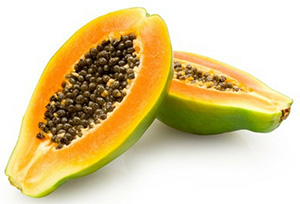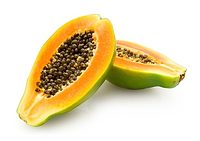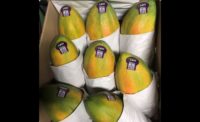The U.S. Centers for Disease Control and Prevention (CDC) has reported a new Salmonella outbreak linked to imported Maradol papayas from Mexico. This outbreak is one of four separate Salmonella outbreaks currently under investigation linked to these fruit.
This past spring, CDC, public health and regulatory officials in several states, and the U.S. Food and Drug Administration (FDA) investigated a multistate outbreak of Salmonella Anatum infections. Fourteen people infected with the outbreak strain were reported from three states. Illnesses started on dates ranging from December 20, 2016, to April 8, 2017. Five ill people were hospitalized. One death was reported from California.
On September 4, 2017, FDA testing identified the outbreak strain of Salmonella Anatum from a sample taken from an imported papaya at the U.S.-Mexico border. Epidemiologic, laboratory and traceback evidence indicates that Maradol papayas imported by Bravo Produce Inc. of San Ysidro, CA, are the likely source of this multistate outbreak.
On September 10, 2017, Bravo Produce Inc. recalled Maradol papayas packed by Frutas Selectas de Tijuana, S. de RL de CV.
The papayas were distributed to California from August 10 to August 29, 2017.
CDC recommends that consumers not eat, restaurants not serve and retailers not sell recalled Maradol papayas imported by Bravo Produce Inc. Restaurants and retailers can ask their suppliers about the source of the papayas imported.
A review of the CDC PulseNet database identified six more ill people with the same DNA fingerprint of Salmonella Anatum who got sick more recently. CDC is investigating to determine if these more recent illnesses are also linked to Maradol papayas imported by Bravo Produce, Inc.
FDA continues testing papayas from Mexico to see if other papayas from other farms are contaminated with Salmonella.
Visit https://www.cdc.gov/salmonella/anatum-9-17/index.html for more information.
Maradol Papayas Still Unsafe




